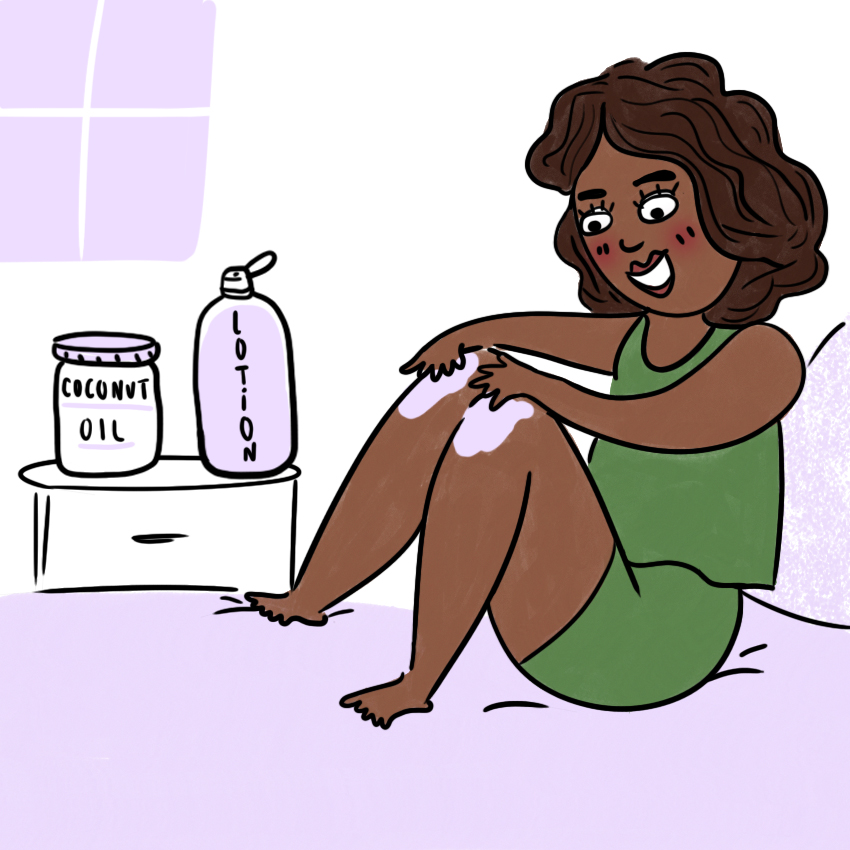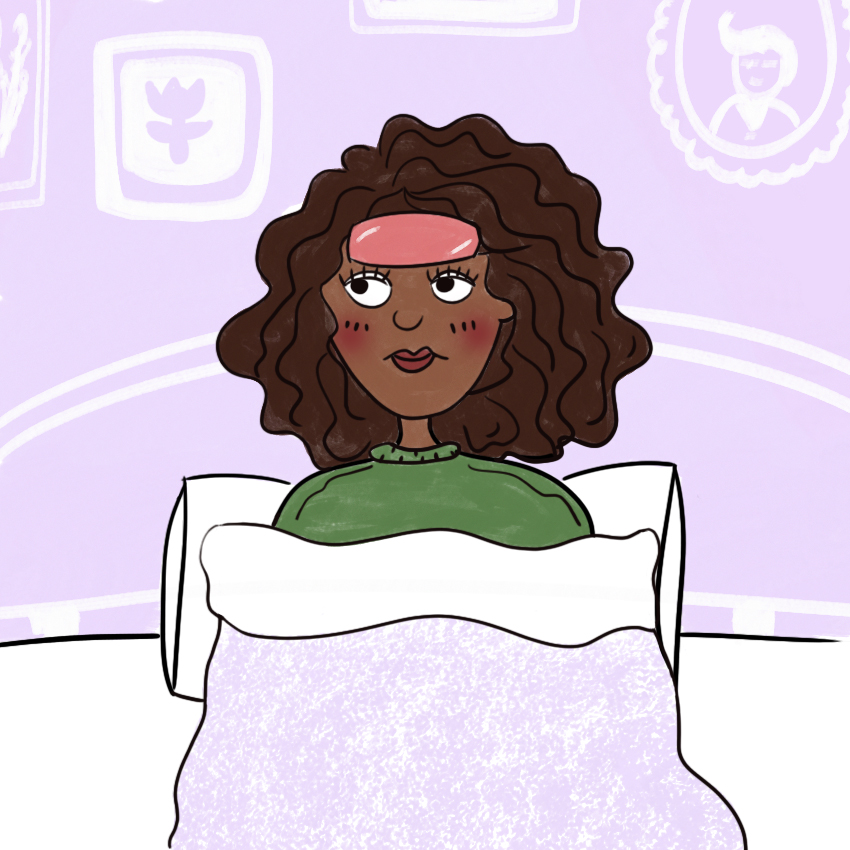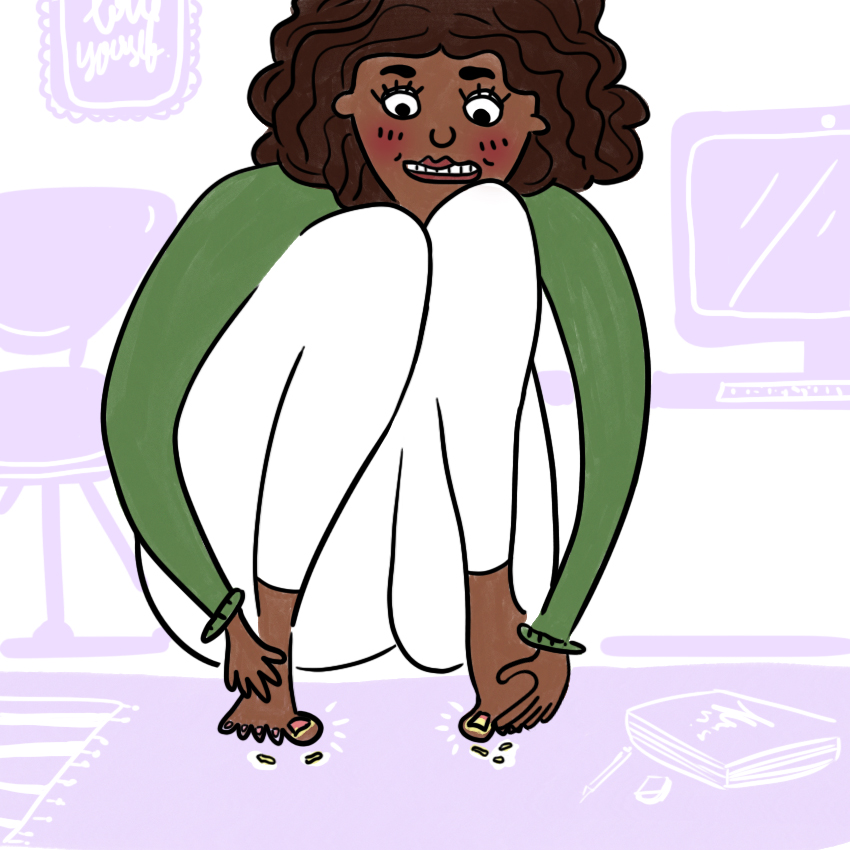
Lavender has long been used in sachets, favored for its fragrant, relaxing scent. But its positive properties extend far beyond providing aromatherapy for your undies. As essential oil diffusers have recently become wildly popular, more people than ever have been introduced to the power of natural oils—including lavender. This is great news, because essential oils can be used to solve just about any problem you can think of, from sweaty armpits to relief from seasonal allergies.
For centuries, lavender has been used to treat and soothe a host of health conditions. Of course, it’s best known for its stress and tension-relieving properties, and to help you catch better Zs. But that’s not all! Take a look at our list below and see if you’re not tempted to stash a bottle of lavender oil in your beauty bag, your medicine cabinet, and your first aid kit!
1. Treat Burns

Most people turn to aloe when they suffer a minor burn, but as it turns out, lavender oil may be even more effective as a natural remedy for burns. While aloe is incredibly effective at relieving the stinging pain of a minor burn, lavender contains antibacterial and antiseptic properties that can actually help heal it. It can also be used along with aloe and an ice pack for soothing, healing relief.
2. Relieve Symptoms of Hay Fever

Lavender has long been recognized as a natural, drug-free way to relieve nasal congestion associated with allergies like hay fever. And really, this should come as no surprise given its potent scent! One of the best ways to use lavender to relieve allergies is to put a few drops in your palms, rub them together and cup your hands to your face as you inhale deeply.
3. Promote Relaxation and Help Sleep

As aforementioned, lavender is known for its relaxing, sedative effects. It’s a great natural sleep aid for adults and children alike. Kids can be notoriously tough to get to sleep, so if you have a mini night owl, try diffusing a few drops of lavender in their rooms to see if it helps with those bedtime battles. You can even use lavender to relax a fussy newborn—try mixing a drop or two into some coconut oil, then massaging baby’s feet to promote a feeling of calm and peace.
4. Treat Eczema

Lavender can be mixed with coconut oil and used to treat non-serious skin conditions like eczema. Here again, its antibacterial and antiseptic properties are beneficial when used to ease that pesky itch and burn. We found a wonderful recipe for a homemade lavender eczema cream here.
5. Mix With Coconut Oil For a Soothing Homemade Lotion

You don’t have to suffer from a skin condition like eczema to benefit from incorporating lavender oil into your skincare regimen. Simply mix several drops of lavender oil into coconut oil or shea butter for a homemade body lotion that smells amazing. Use it at night to help you drift off to sleep after a warm bath, or anytime if you want to enjoy the pleasing aroma.
6. Relieve Asthma

First, let us be perfectly clear: If you or your child are suffering from asthma, we are not recommending that you use lavender oil as your only method of treatment and management. Asthma is a serious medical condition and you should always follow your doctor’s instructions for treating it, and never try anything new without first discussing it with your doctor. That said, recent studies indicate that the anti-inflammatory properties of lavender oil may be effective in relieving the symptoms of asthma, like airway restriction and mucus build-up in the lungs. So while you shouldn’t rely solely on lavender for asthma, it can’t hurt to use it as a supplementary treatment—as long as your doctor says it’s okay.
7. Alleviate Migraine Pain

If you’re someone who suffers from regular migraines, chances are you’d do just about anything to get rid of them. If so, it may do you well to add some essential oils to your treatment regimen, and lavender is a great place to start. When using lavender for migraines, it’s best to put several drops of lavender oil in boiling water, then lean over and inhale the steam. And if you’re experiencing migraines during pregnancy, here’s some good news: Studies have shown this to be an effective and safe way to naturally relieve migraines.
8. Anti-fungal Properties

Here’s a little-known fact about lavender essential oil: if you’re suffering from athlete’s foot, ringworm or another minor fungal infection, you may be able to skip the trip to the drug store. A study in ScienceDaily indicates that lavender oil is actually a potent anti-fungal that can be used to alleviate such conditions. (Of course, always consult with your doctor first.)
9. Relieve Some Side Effects of Depression

Lavender oil has been taken orally for centuries as a treatment for a variety of disorders, including seizures, migraines, and insomnia. Now, it seems that this wonder plant may be gaining traction in the scientific community as a treatment for depression and other neurological disorders. Recent studies indicate that lavender taken orally may be equally as effective as prescription medications when it comes to the treatment of these types of conditions.
10. Help to Balance Blood Sugar

Lavender is among the many essential oils that can be beneficial if you’ve been diagnosed with diabetes. Some animal studies have shown that lavender oil can be helpful in regulating blood sugar. However, when it comes to using essential oils to treat serious medical conditions like diabetes, again, please always consult with your doctor first, and remember to use the oils as a helpful part of your treatment rather than as a substitute.




